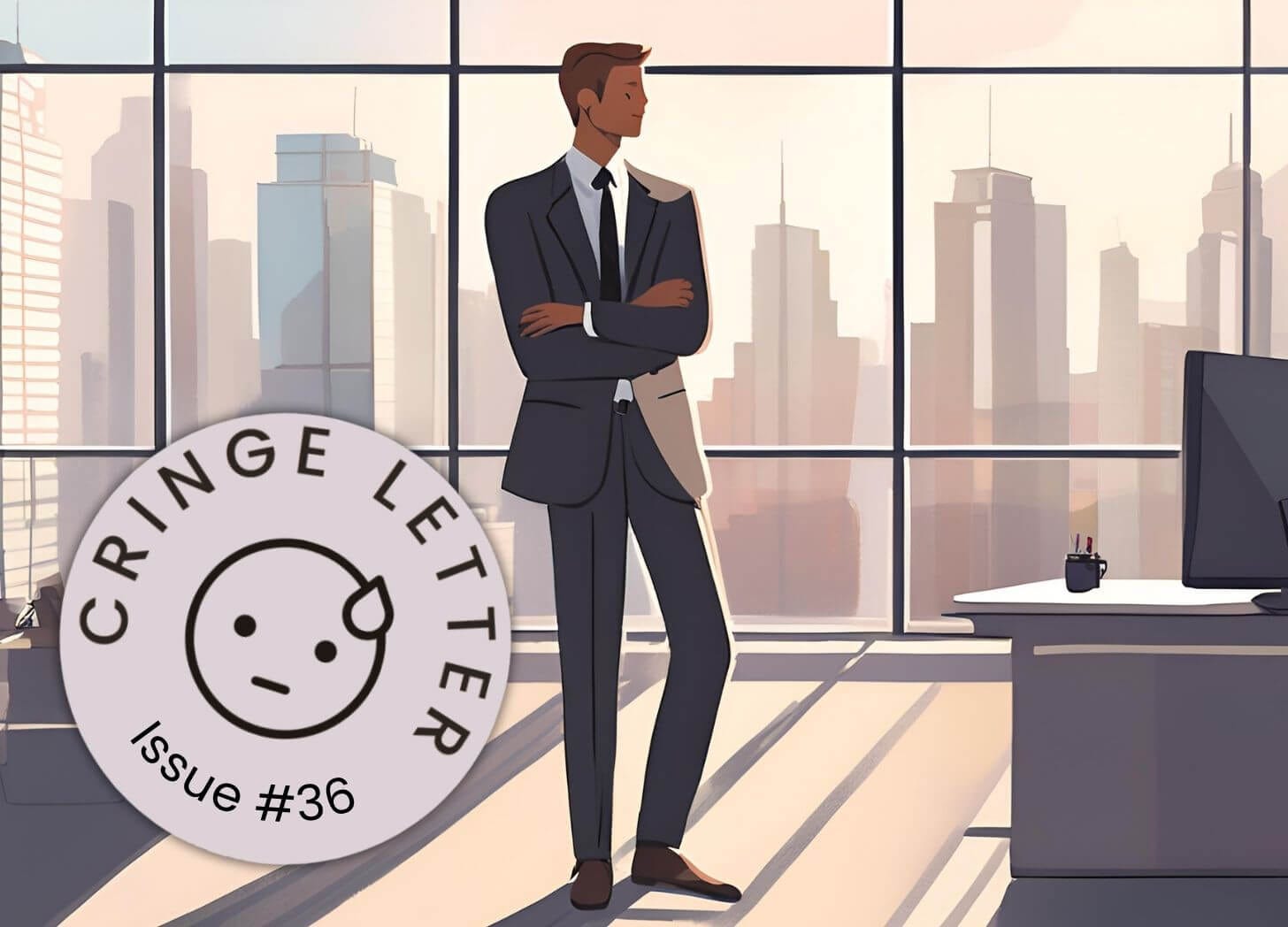Hi Cringers,
Let’s talk about “professionalism.”
Don’t worry, this email won’t be as boring as it sounds.
After all, “Be professional,” is usually said to dampen the mood, keep people in line, and end the laughfest at the water cooler.
When you think of a “professional” a certain image might even come to mind.
Try it. Close your eyes and picture a “professional.”
Does it match something like this image created by ChatGPT? A bizzaro Don Draper from Mad Men?
I was intentionally vague with prompting AI to see what it defaulted to and no matter how many times I asked it to create another image it gave me some variation of this guy:
I’ve never met this person so it’s hard to describe his personality. If I had to guess I’d say he’s into crypto, goes golfing on weekends, and shares Stoicism quotes on LinkedIn.
The point is that not having a discernable personality is in my mind exactly what the stereotypical definition of “professional” entails.
The Wikipedia definition of professionalism is “a set of standards that an individual is expected to adhere to in a workplace, usually in order to appear serious, uniform, or respectful.”
Another definition comes from Michael Yeo, a philosophy professor at Laurentian University in Sudbury, Ontario:
“Professionalism, in its essence, is an attitude whereby you assume a particular role. I subordinate my personal identity to the role — that is, essentially, what I think professionalism comes down to.” (source)
Are you starting to see some of the issues here?
Being “professional” can be synonymous with masking your personality, especially if you don’t fit the status quo image.
It’s no wonder people are confused about how to be “authentic” AND “professional” on LinkedIn. These ideas can contradict each other.
So let’s get back to the most basic definition of “professionalism” as “the competence or skill expected of a professional.”
That’s it.
Professionals don’t look, sound, or act in any one type of way.
Professionals can do their jobs well, be respectful, AND have personalities.
They can have tattoos, wear bright colors, come from different cultural backgrounds, and even laugh!
Wild, eh?
When you reframe your thinking of “professionalism” you’ll feel less shame about showing up in a way that feels natural for you.
This will make it easier for you to build your reputation in a sustainable and impactful way and you’ll likely connect with others who are embracing the true meaning of professionalism.
You are more than what you do and your reputation should reflect that.
Dulling yourself down will not do you any favors, especially if you want to stand out and build real connections.
It’s not “unprofessional” to be a person with a personality, interests, and perspective.
It seems I’m not the only one who feels this way based on the many responses to my recent LinkedIn post on the topic:
There were tons of great comments in this thread related to professionalism, what it is, what it isn’t, and ideas for reframing our thinking.
What do you think? How do you view “professionalism?” Reply to this email and let me know!
P.S. Are you ready to start building your reputation so you can attract your next big business opportunity?
Here’s how I can support you:
🟡 Book a Clarity Call. I can help you figure out your next steps.
🟡 Book your LinkedIn Profile Design or Full Rebrand.
🟡 Hire me to write for you. I offer LinkedIn Ghostwriting to save you time and get you moving in the right direction faster.










You hit the nail on the head. Being good at your profession, which encompasses technical skill and dealing with others, is where the focus should be. Everything else is conformity.
I recently worked with a company that went on and on about meshing with their culture. Why not expand the culture?